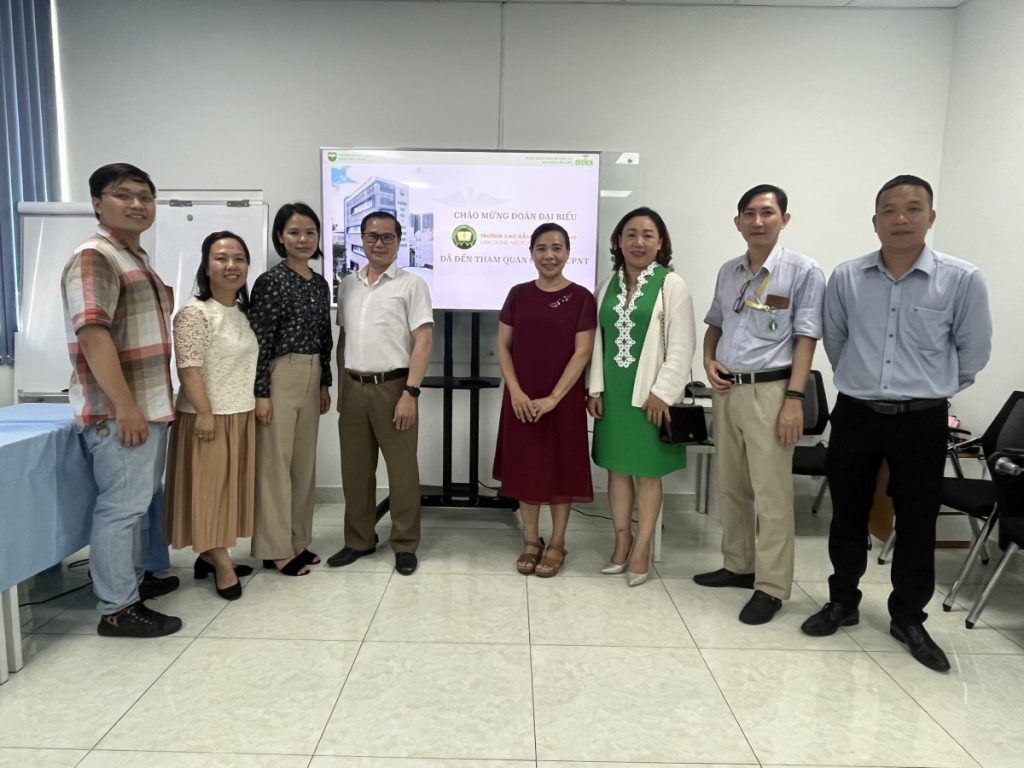
On June 14, 2023, the Lam Dong Medical College delegation, under the direction of Mr. Ly Duy Hung, Vice Rector, had an essential visit to the Center for Clinical Innovation and Simulation (CECICS). This visit helped the delegation better understand the role and importance of simulation in Health in medical teaching and the need to achieve high accreditation standards.
During the visit, representatives of the Center presented an overview of simulation in Health and SSH (Simulation in Healthcare) accreditation standards that the Center has achieved. This is an important step forward in ensuring the quality and effectiveness of Medical simulations during medical training.
The College delegation had the opportunity to visit and learn how the Center operates and operates. OSCE (Objective Structured Clinical Examination) and Simulation rooms were introduced, reproduced room structures such as clinics or rooms such as resuscitation, delivery rooms, invasive vascular procedure intervention rooms, and ultrasound rooms,… Students learn and have close access to reality while practicing and honing skills. In addition, the delegation also learned about the application of the LearningSpace system, helping to effectively manage the simulation learning process of students at the Center.
After that, the delegation had time to discuss and ask questions to representatives of the Center in order to clarify more about the issue of simulation learning and simulation application in medical teaching, especially for mainly Nursing. This is a significant opportunity to share knowledge and experience between members of the Center and representatives from Lam Dong Medical College.
The delegation hoped that after this visit, specific activities would be implemented to improve the level of simulation teaching lecturers, build simulation facilities and prepare standard patients according to accreditation standards.
Participation in Health simulations not only gives trainees a way to learn directly and practice in a safe environment but also helps improve skills and evaluate the effectiveness of medical training.

Medical simulation has proven to help improve the quality of teaching and prepare for medical reality. It helps students form quick reflective thinking skills, make correct decisions, and work effectively in groups. At the same time, medical simulation also helps reduce risks and limit errors in the actual patient care process.
Achieving accreditation standards in medical simulations requires investment and commitment from both educational and medical institutions. However, the benefits are worth these efforts. Ensuring that medical simulations meet accreditation standards will help define evaluation criteria, ensuring consistency and high quality in the training process.
The Center for Clinical Simulation and Innovation (CECICS) has demonstrated the significant role of medical simulation and strived to achieve SSH accreditation standards. Achieving accreditation ensures students benefit from high-quality and standardized simulation practices, enhancing their ability to serve and care for patients in the future.



